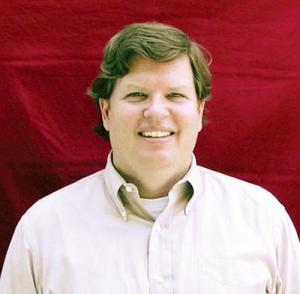Before I did the How to Dream in Color Workshop, in 2002, if someone had asked me for my goal as a CPA, I’d probably have answered, “To finish the tax return that’s on my desk.” I’d hit bottom in 2000 and was just coming up.
From 1985 to 1996, I was succeeding as a sole practitioner. By ’96 I’d reached $250,000, about as far as I wanted to go by myself, and begun hiring staff and gathering clients to see how big I could grow. By 2000 I had nine staff, $700,000 gross, but my personal income had shrunk close to zero. My profession had become a really nice hobby. That’s what brought me to Sterling.
Sterling helped get me some of it squared away. I replaced my overpriced and under-performing staff, got my practice on the upswing and my personal income moving in the right direction, but I still couldn’t define my goals. I couldn’t think that far in the future. And if I couldn’t decide where I wanted to go, I certainly couldn’t plan how to get there. The How to Dream in Color Workshop changed everything.
The first part of the workshop gave me a structure I could use to accurately judge whether a client’s thinking was logical or illogical. This was major. Most of our clients don’t really know what their numbers mean or how they should all fit together, and because they don’t know, they don’t see where adding, omitting, altering data has led them to wrong, and often costly, conclusions. Clients don’t know the process. Before the workshop we’d simply accept their data and get stuck in their confusions. I use the principles I learned to help staff when they get stuck in a job and can’t find their way out. Because we no longer get tangled in a client’s confusions, we can service them better. Everyone appreciates the difference.
As I continued through the workshop, I discovered that I’d never completely made the transition from sole practitioner into executive so I wasn’t choosing the right employees or utilizing them well. I’d been a bit blind and my hiring and management mistakes had cost me. I began to realize that without good staff working smoothly together and supporting me, everything would depend on my personal production – as it had when I worked by myself.
During the workshop my consultant helped me define the ideal scene for my practice. By comparing this ideal operating state with my existing situation, the flaws became obvious and I developed the ability to see which actions would move me toward the ideal, and which would move me away from it. Since part of my ideal included a description of an ideal employee, comparing an applicant with my ideal improved my ability to choose with certainty rather than complaining that I can never find good staff. I just needed to seek out and hire productive people that really enjoy doing the kind of work we do and can be happy working with a good group.
Since then I’ve started hiring better and higher-toned staff, my practice is running better, I’m able to spend fewer hours on accounting and bookkeeping, and accomplish more. Better yet, since I only have to work four days a week, I have enough time and attention left for things I enjoy outside the practice such as coaching kid’s hockey. I’ve been doing that for nearly ten years, ever since my oldest son got into high school.
As we progressed the things I wanted began to crystalize. One was that I wanted the small business clients we serve to do well because of tax and financial planning we do for their businesses. Another was that I wanted an orderly, smooth, organized, and profitable practice that was not crazy at tax time.
As I was finishing the workshop, I was writing down not only where I wanted to go but the exact steps that would get me there. And I discovered something I hadn’t thought of for years.
I was very bored in college, accounting seemed like the hardest subject and the biggest challenge in business school, so I went into accounting. I was much more interested in law. I still am. I discovered that what I loved about being a CPA was working with tax law and helping people solve their problems with the IRS – that’s one of the biggest kicks that I get – and when I get stuck in accounting and bookkeeping too much, I can’t do what I like to do, help people.
People are very much the effect of taxes. They know taxes are hurting them, somehow, but don’t know what to do about it. I enjoy finding solutions they wouldn’t see so they can do their work without the stress of worrying that they’re doing something wrong or paying too much.
The tax code is complicated, not well organized, or cohesive, and it’s full of “I gotcha’s” and traps for people to fall into. Many fear it. I can give them peace of mind. Before the How to Dream in Color Workshop, I never could have said that peace of mind was what I wanted to produce.
Larry Holmes, CPA

